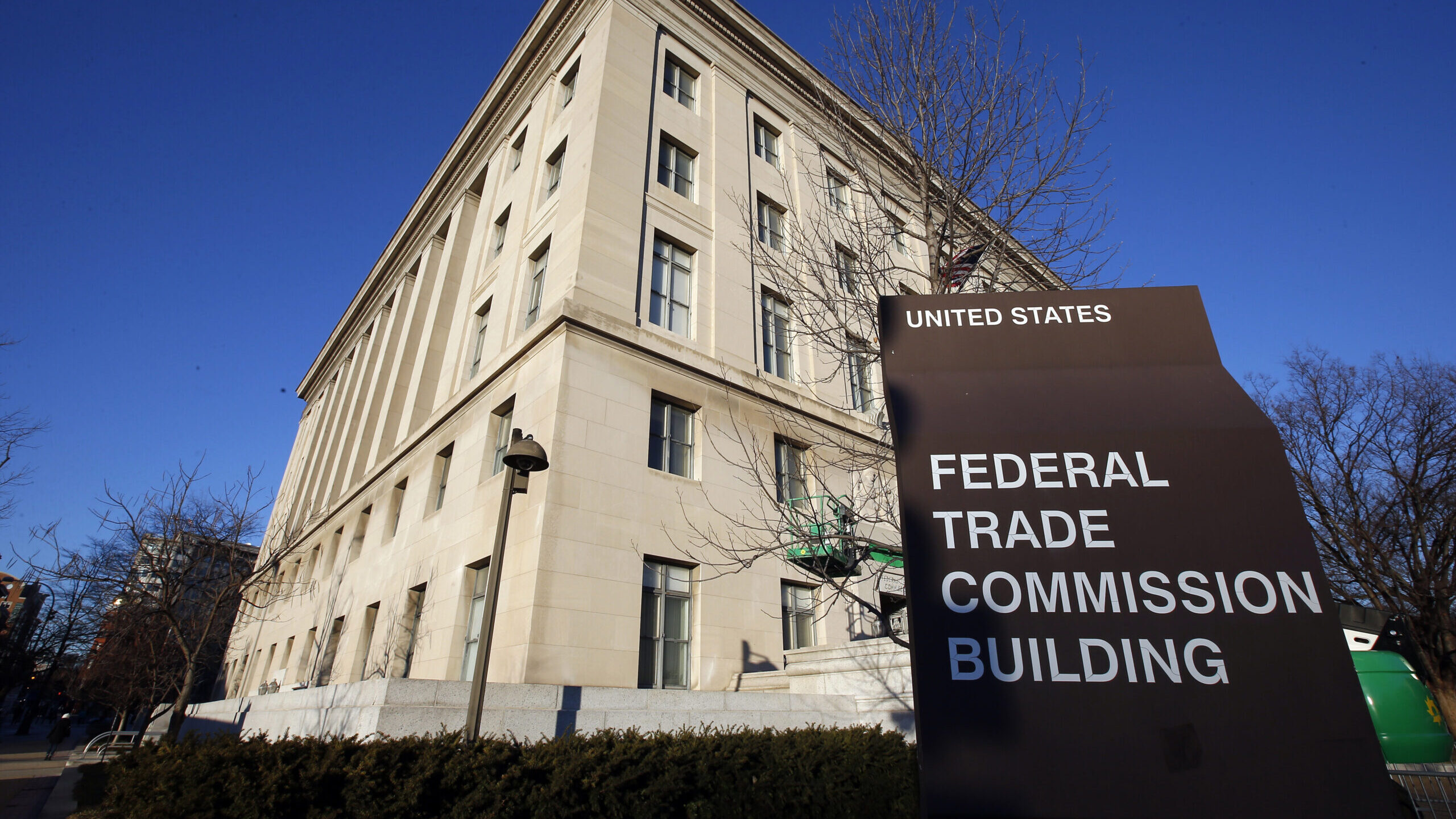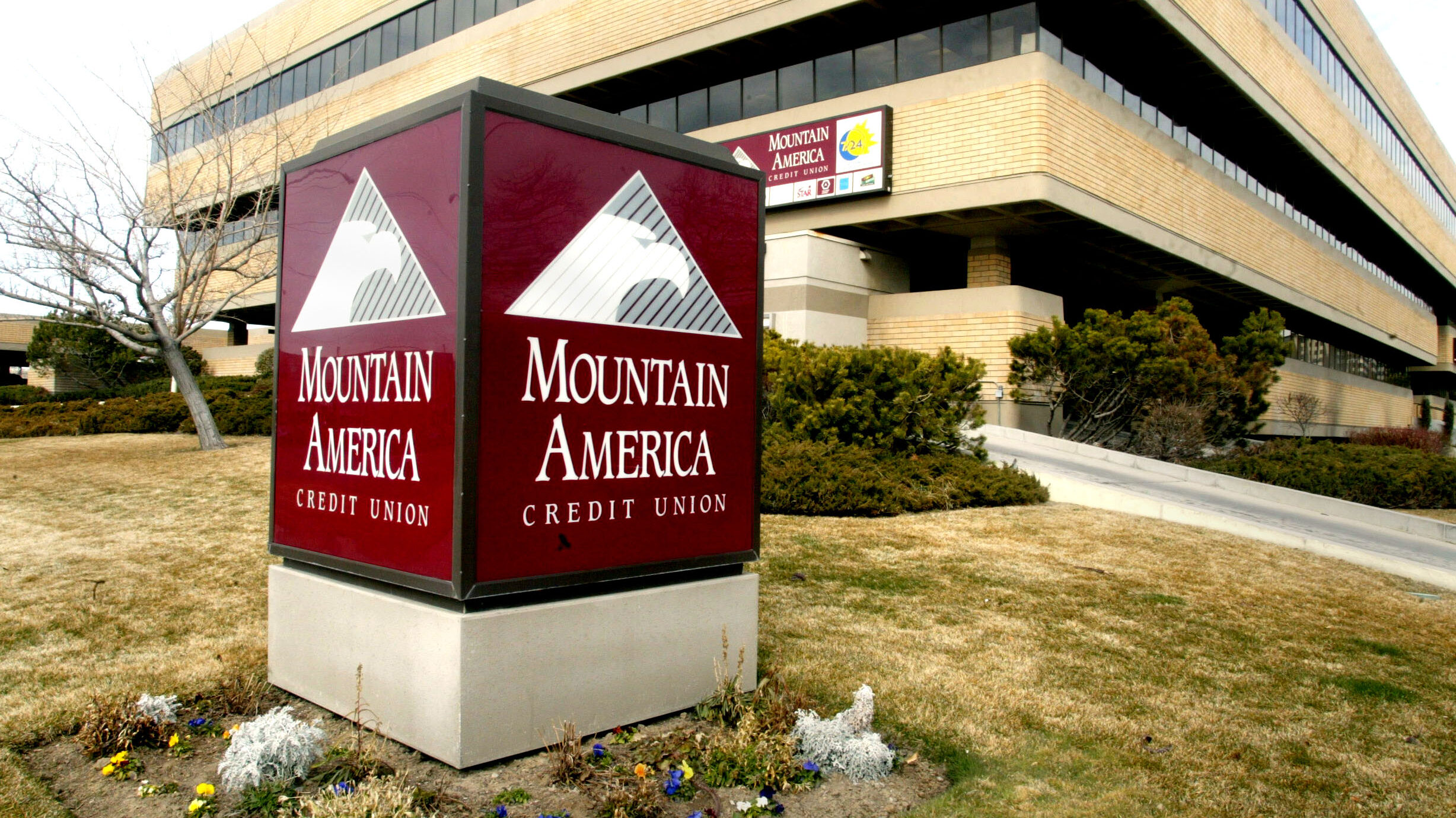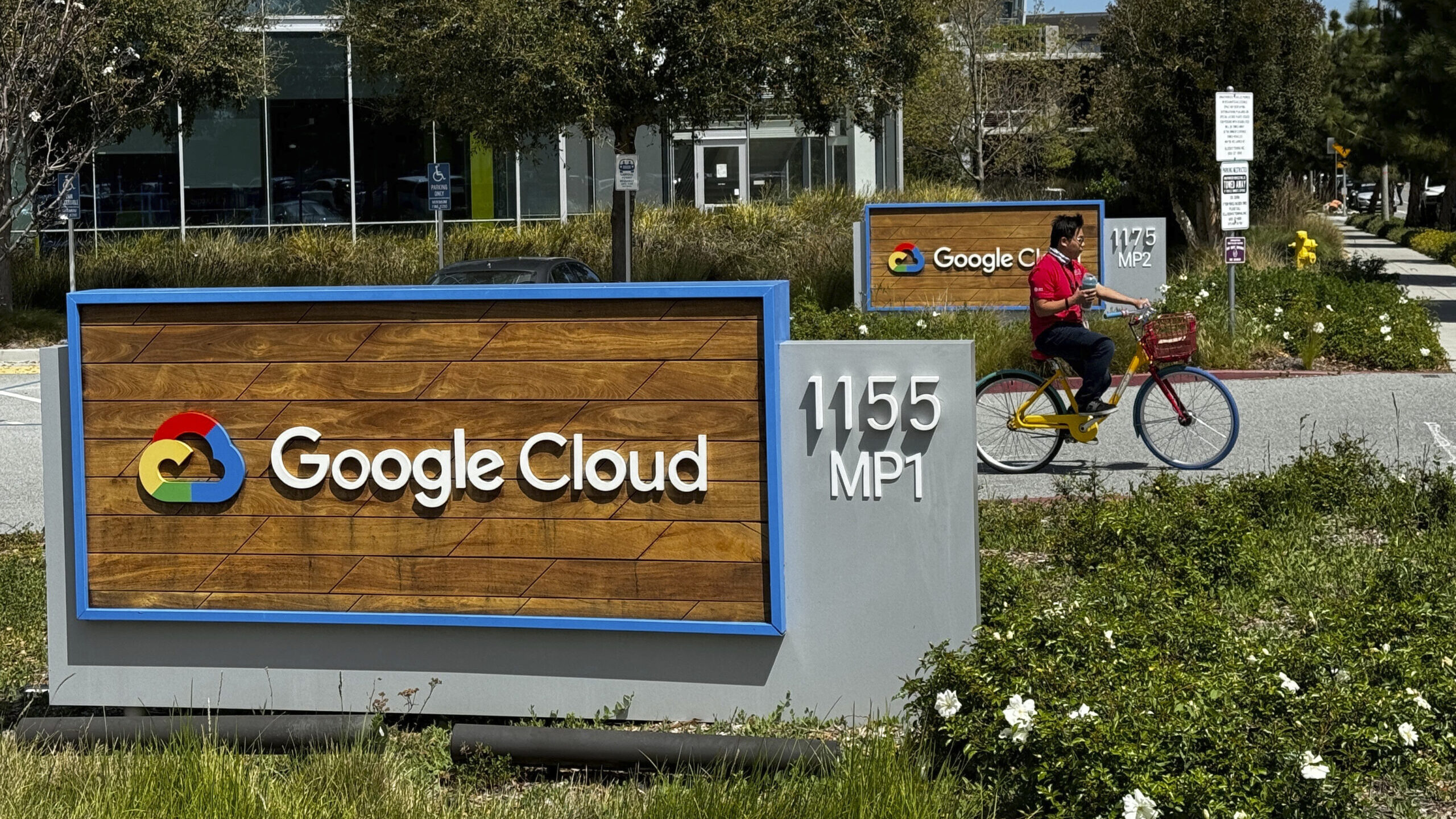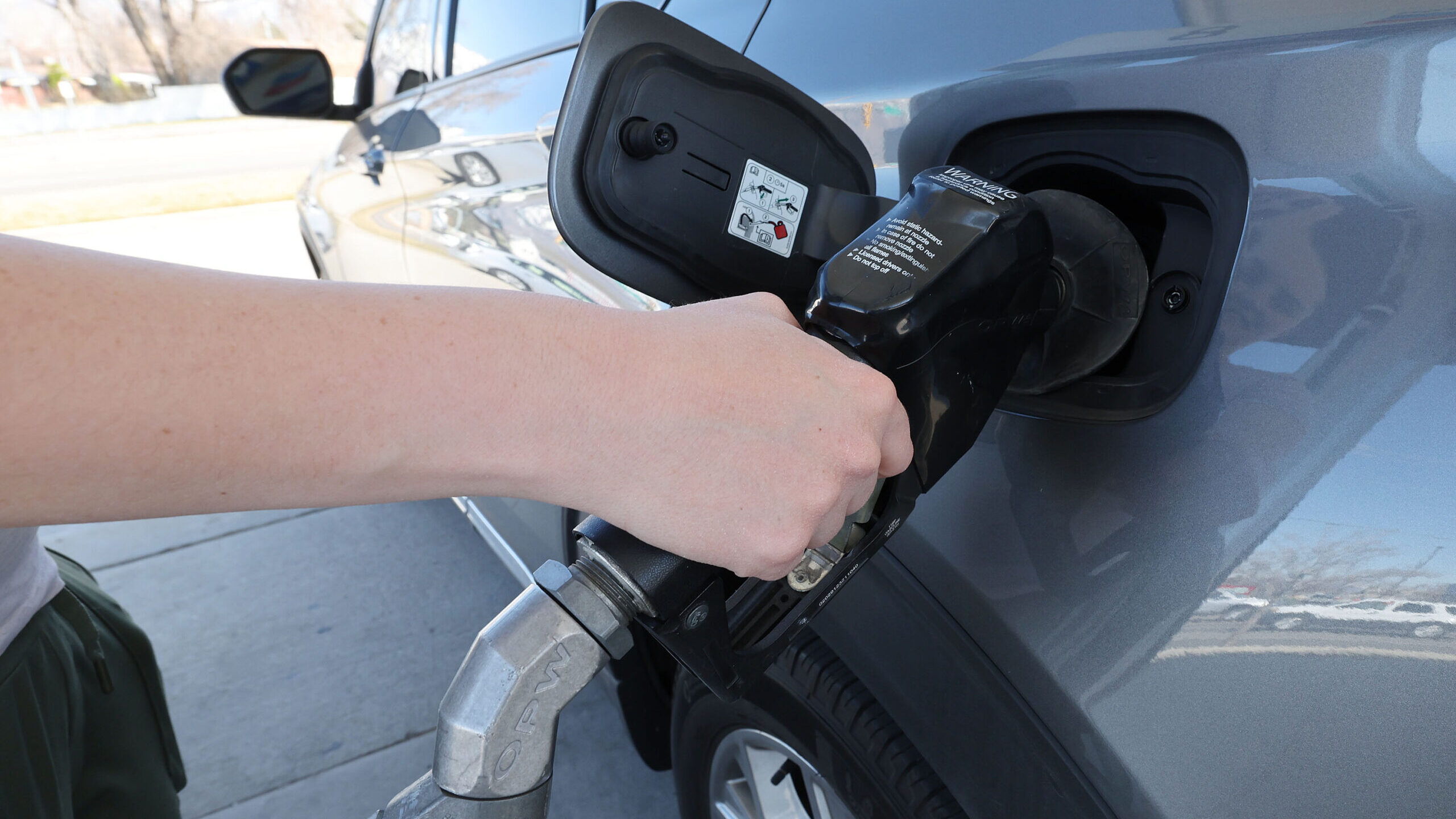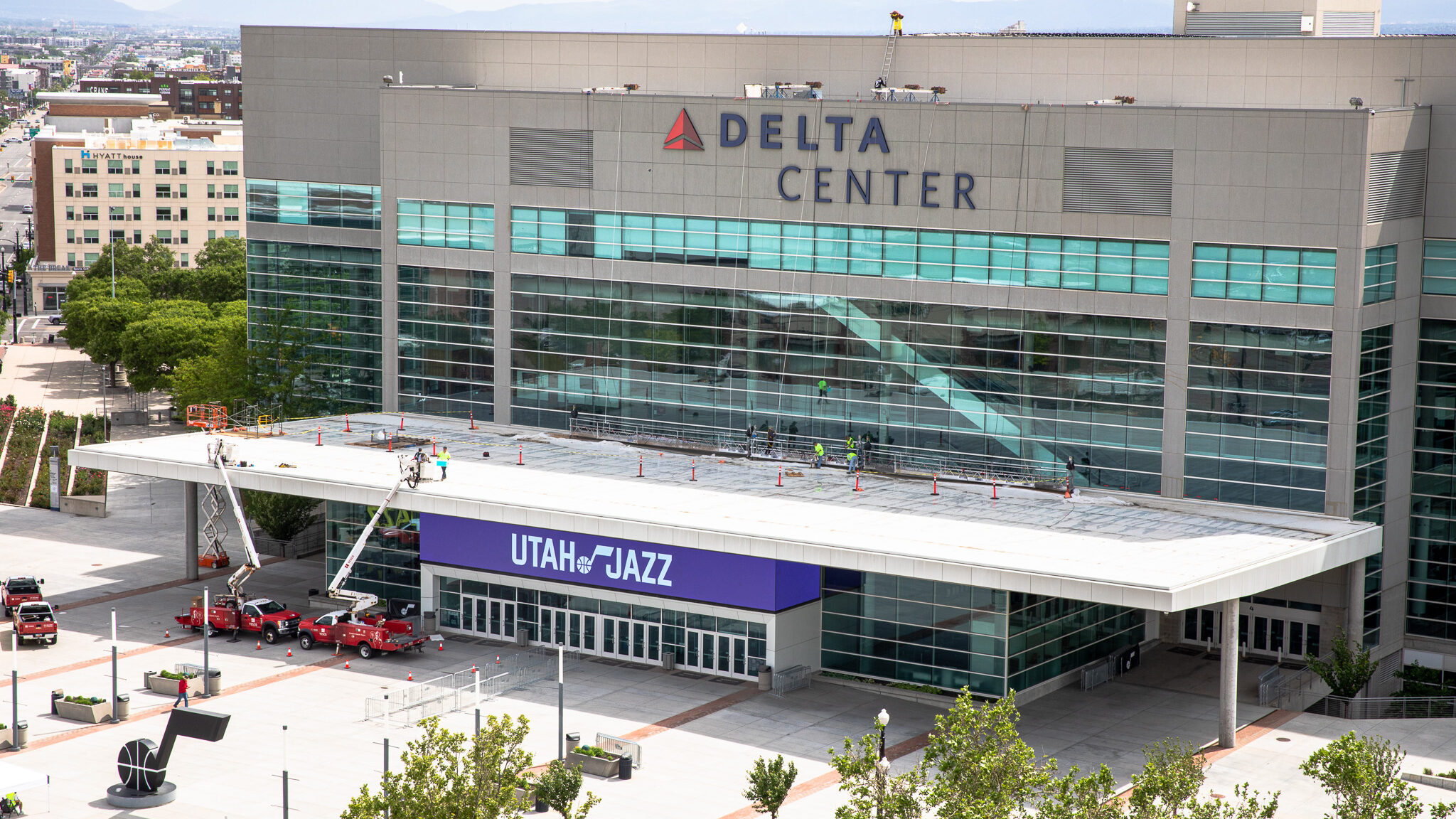Pent-up worldwide demand squeezing global supply chain
Oct 21, 2021, 6:04 PM
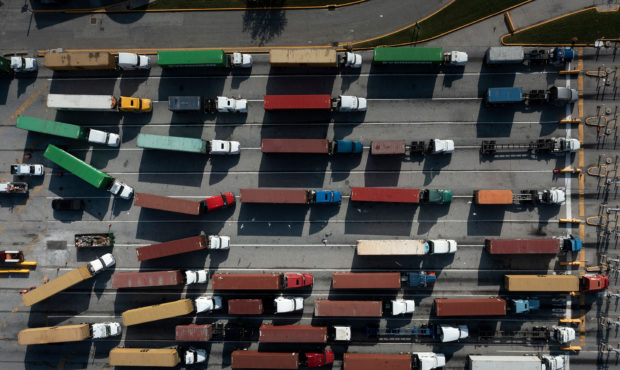
In this aerial image, trucks transport cargo containers at the Port of Baltimore in Baltimore, Maryland, on October 14, 2021. - Closed factories, clogged ports, no truck drivers -- up and down the global supply chain there are problems, raising concerns that it could disrupt the global economic recovery. (Photo by Brendan Smialowski / AFP) (Photo by BRENDAN SMIALOWSKI/AFP via Getty Images)
(Photo by BRENDAN SMIALOWSKI/AFP via Getty Images)
SALT LAKE CITY — Store shelves are emptying, ports are backed up, the holiday shopping season is approaching. The global supply-chain mess is likely to get messier before it gets better, says a Utah import/export specialist.
In 2020 when the pandemic struck, workers were sent home and their workshops shuttered. Demand began to surge back when coronarvirus vaccines began rolling out. With government pandemic-assistance checks in their pockets and being done with staying home, consumers swamped stores.
Ships traveling with goods from Japan, China and South Korea and other nations are now lining up to dock in Los Angeles and Long Beach, Calif., and other US ports.
Demand to keep rising worldwide
Miles Hansen, president and CEO of World Trade Center Utah, looks at the global supply-chain crisis and talks to Inside Sources host Boyd Matheson about how it happened and where it’s going.
“What is the thing we’re not thinking about when it comes to the supply chain?” Boyd asked.
Hansen said it is not just in the United States; countries around the world are also seeing pent-up demand from consumers who also have been sitting on government-assistance money.
He added that the pandemic caused an increase in productivity around the world, which increases demand over time. Hansen predicted this new spike in demand will continue in the years to come.
“What are you seeing from World Trade Center Utah in terms of how local companies are dealing with this [global supply chain crisis]?” Boyd asked.
“If there’s ever a time to underscore the fact that we don’t have enough port infrastructure on the [West] coast, it’s now,” Hansen said.
He added the global supply-chain crisis highlights the importance of Utah’s inland port and its benefit to the North American supply chain.
Energy shortage on horizon
“Anything else we should be watching in the near term?” Boyd asked.
“This thing [the global supply-chain crisis] is probably gonna get worse before it gets better,” Hansen said.
He advised listeners to order well in advance — especially for holiday items. He added another thing to keep an eye on are energy shortages cropping up in China and elsewhere in the world.
“Coal is at an all-time high. We’re looking at propane shortages, gas and oil as well. That is going to have a ripple effect on the economy,” Hansen said.
Inside Sources with Boyd Matheson can be heard weekdays from 1 p.m. to 3 p.m. on KSL NewsRadio. Users can find the show on the KSL NewsRadio website and app.


